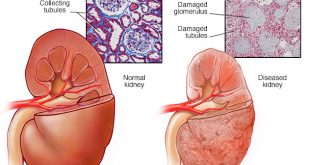What is HIV?
HIV is the human immunodeficiency virus. It can lead to a disease that causes progressive damage to your body’s immune system, called acquired immunodeficiency syndrome (AIDS). This disease increases your chances of getting serious infections which normal people can usually resist. The most common one is caused by a parasite called Pneumocystis carinii, which causes a kind of pneumonia that is hard to treat. People with AIDS are also more likely to develop certain cancers, such as Kaposi’s sarcoma. This cancer is usually limited to the skin, but may become widespread in AIDS patients, affecting the skin, lymph nodes, and abdominal organs. The first sign of Kaposi’s sarcoma is red to purple bruises or sores on the body or inside of the mouth or nose. Other types of cancer may occur, including lymphoma, a cancer of the lymph nodes.
How is HIV spread?
The most common ways HIV is spread from one person to another include:
- Having unprotected sex with an infected person
- Sharing of needles for injection or sharp used by patients with HIV Transmission.
- Transmission from an infected mother to her baby during childbirth or breastfeeding after birth.
In addition, tattooing or body piercing can be a source of HIV infection if the instruments used are contaminated with infected blood. These instruments should be used once and disposed of or cleaned and sterilized thoroughly after each use.
What are the symptoms of AIDS?
About half the people infected with HIV develop AIDS within 10 years after becoming infected. This time varies greatly from person to person. Many people who are infected with HIV do not have any symptoms for many years. The only way to tell for sure whether you are infected is to be tested for HIV infection.
The following may be warning signs of infection with HIV:
- Unexplained Rapid weight loss
- Persistent Dry cough
- Continuing fever or night sweats
- Feeling very tired and run down for unclear reason
- Swollen lymph glands in the armpits, groin or neck
- Diarrhea that lasts for more than a week
- White spots or unusual blemishes on the tongue, in the mouth or in the throat
- Red, brown, pink or purplish blotches on or under the skin or inside the mouth, nose or eyelids
- Memory loss, depression and other neurologic symptoms.
However, you should not assume you are infected if you have any of these symptoms. The symptoms of AIDS are similar to those of many other illnesses. AIDS is a medical diagnosis made by a doctor and based on specific criteria.
Is there a treatment for AIDS?
Today, treatments are available to fight both HIV infection its related infections and cancers. Zidovudine, or AZT, is one of the earliest drugs used to treat HIV infection. AZT and other similar drugs can help slow the spread of HIV in the body and delay the onset of related infections. In addition, newer types of HIV drugs, such as protease inhibitors, have also proven helpful in suppressing the virus. Because HIV can become resistant to each class of drugs, combination treatment is necessary to effectively suppress the virus. Currently, available drugs can control disease activity but do not cure people of HIV infection or AIDS. However, drugs to treat HIV have side effects that can be serious. A number of drugs are also available to help treat the infections that occur in people with HIV. These include drugs to treat cytomegalovirus eye infections, yeast, other infections and Pneumocystis carinii pneumonia. HIV-infected individuals who develop Kaposi’s sarcoma or other cancers may be treated with radiation, chemotherapy or injections of interferon.
Can I get AIDS from my dialysis treatment or a blood transfusion?
The chances are very small. The strict infection control measures used by your dialysis care team protect you against this infection. Blood transfusion will be made if clinically necessary. All donated blood is carefully screened for the infection before transfusions are done.
Is transplant an option?
So far in Malaysia, we have not carried out any kidney transplant for patients with HIV. However, there have been reports of good outcome in selected HIV patients who have been transplanted. Provided they fulfill certain clinical criteria.
How can I prevent AIDS?
A great deal of research is being done to develop a vaccine. In the meantime, the best way to prevent the infection is to follow safe sex guidelines and avoid high-risk behaviors such as injecting illegal drugs.
| Last Reviewed | : | 12 May 2016 |
| Writer | : | Dr. Loh Chek Loong |
| Accreditor | : | Y. Bhg. Datuk Dr. Ghazali bin Ahmad |
 PENDIDIKAN PESAKIT Kementerian Kesihatan Malaysia
PENDIDIKAN PESAKIT Kementerian Kesihatan Malaysia
